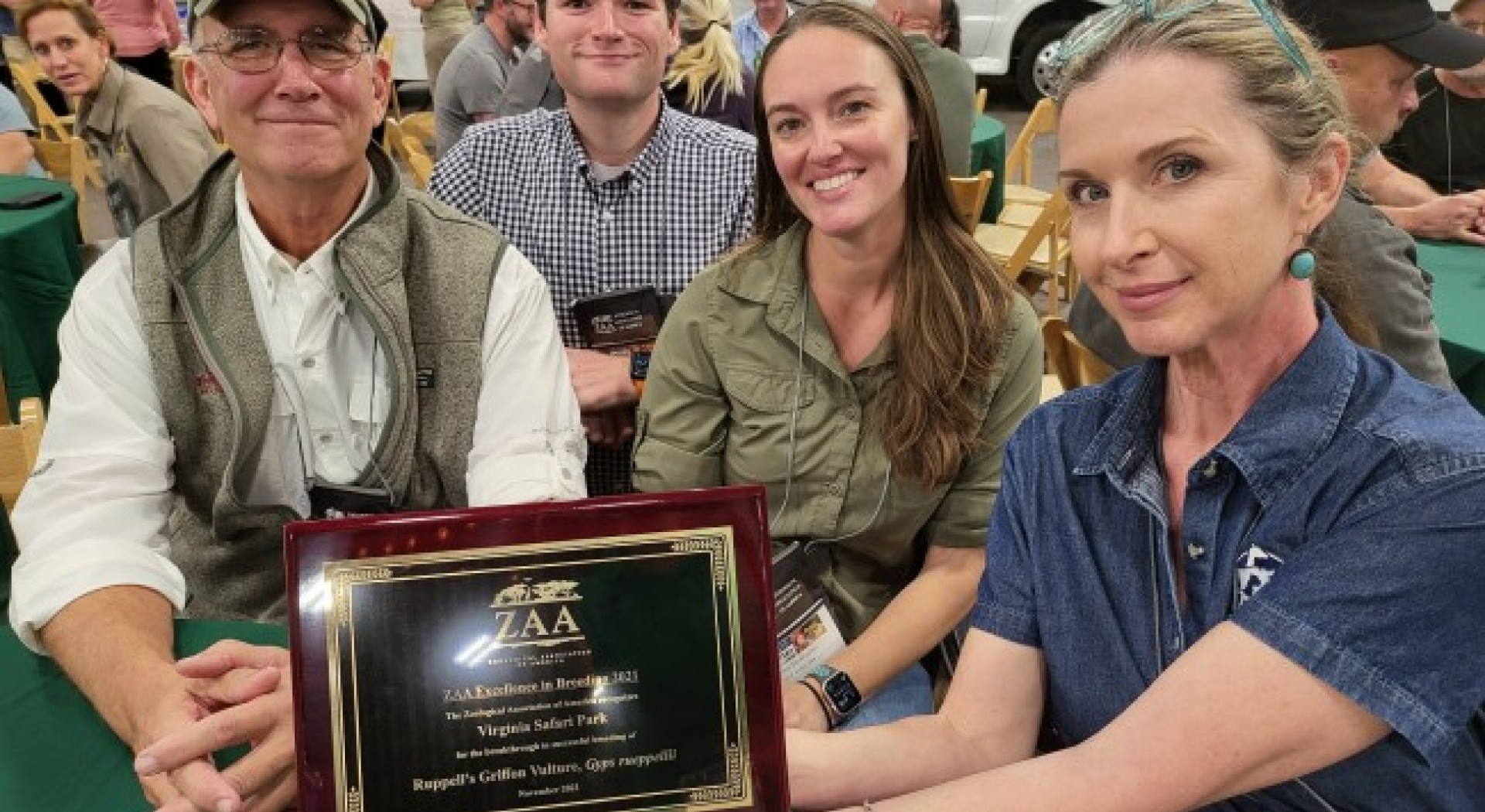Virginia Safari Park Recognized by ZAA for Excellence in Breeding
Virginia Safari Park was recognized recently by the Zoological Association of America for its breakthrough in successful breeding of Ruppell's Griffon Vulture.
Virginia Safari Park was recognized recently by the Zoological Association of America for its breakthrough in successful breeding of Ruppell's Griffon Vulture.
Virginia Safari Park committed in 2012 to making the Ruppell's griffon vulture a focus species for our conservation breeding efforts. Given the past success we have had with rare species across all taxa, we wanted to employ our expertise to help this critically endangered vulture species. With only a limited number of birds in the regional population, we decided to import new founder stock to augment the population already in the United States. Two pairs of sub-adult vultures were sourced from the Republic of Guinea in West Africa and arrived in the U.S. in mid-2013.
Ruppell's griffon vultures are a communal nesting species, so we knew that successful breeding would require multiple pairs living in as natural and undisturbed of a setting as possible. Birds in our breeding group are fully flighted, which we feel is a crucial component to the success of our breeding program. Additionally, we regularly employ the use of whole carcass feeding to the birds, which is enriching, helps social structure, and is nutritionally beneficial. Through these husbandry methods, we have successfully produced four chicks from 2018-2021. We were the only ZAA accredited facility to hatch and raise this species in the time frame and produced 45% of the chicks successfully hatched in the regional population.
Virginia Safari Park is capitalizing on our success with this species and is working cooperatively with other zoos to maximize genetic diversity and the number of birds produced in the population. We are committed to this species long-term and plan to expand our population of these birds in the future to educate and inspire guests at our park for decades to come. We hope that this species' sustainable North American population can serve as a backstop to extinction in their native range.